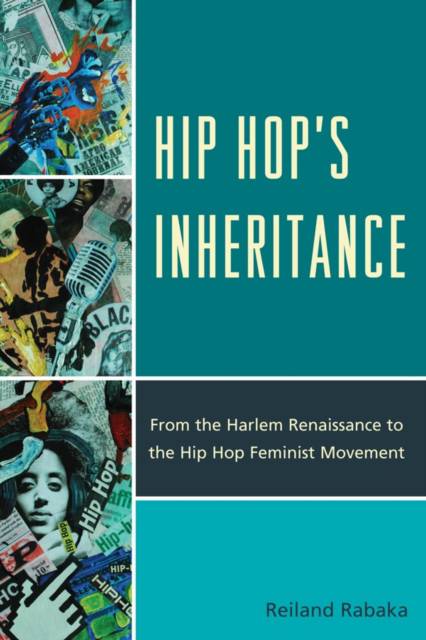
- Afhalen na 1 uur in een winkel met voorraad
- Gratis thuislevering in België vanaf € 30
- Ruim aanbod met 7 miljoen producten
- Afhalen na 1 uur in een winkel met voorraad
- Gratis thuislevering in België vanaf € 30
- Ruim aanbod met 7 miljoen producten
Zoeken
Hip Hop's Inheritance
From the Harlem Renaissance to the Hip Hop Feminist Movement
Reiland Rabaka
Hardcover | Engels
€ 254,45
+ 508 punten
Uitvoering
Omschrijving
Hip Hop's Inheritance arguably offers the first book-length treatment of what hip hop culture has, literally, "inherited" from the Harlem Renaissance, the Black Arts movement, the Feminist Art movement, and 1980s and 1990s postmodern aesthetics. By comparing and contrasting the major motifs of the aforementioned cultural aesthetic traditions with those of hip hop culture, all the while critically exploring the origins and evolution of black popular culture from antebellum America through to "Obama's America," Hip Hop's Inheritance demonstrates that the Hip Hop generation is not the first generation of young black folk preoccupied with spirituality and sexuality, race and religion, entertainment and athletics, or ghetto culture and bourgeois culture.
Specificaties
Betrokkenen
- Auteur(s):
- Uitgeverij:
Inhoud
- Aantal bladzijden:
- 302
- Taal:
- Engels
Eigenschappen
- Productcode (EAN):
- 9780739164808
- Verschijningsdatum:
- 16/02/2011
- Uitvoering:
- Hardcover
- Formaat:
- Genaaid
- Afmetingen:
- 157 mm x 231 mm
- Gewicht:
- 589 g

Alleen bij Standaard Boekhandel
+ 508 punten op je klantenkaart van Standaard Boekhandel
Beoordelingen
We publiceren alleen reviews die voldoen aan de voorwaarden voor reviews. Bekijk onze voorwaarden voor reviews.







